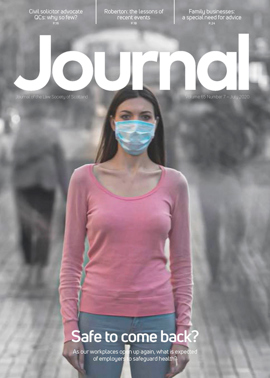“Furlough fraud”: what can HMRC do?
The Coronavirus Job Retention Scheme (commonly known as the furlough scheme) has been a necessary lifeline for businesses during the COVID-19 pandemic since it was first announced by Chancellor Rishi Sunak on 20 March this year. Until 1 August, it allows employers to claim 80% of the normal pay and national insurance contributions of employees designated as furloughed, up to a cap of £2,500 per month.
It is estimated that over 8 million individuals are currently furloughed, costing around £14 billion each month. One of the main conditions of the scheme is that employees cannot be asked to undertake “remunerative work” while furloughed, a condition that is not always met by employers receiving the grant. Given the huge cost to the state, it is no surprise that, as administrator of the scheme, HMRC is implementing various methods to deal with fraudulent claims.
Finance Bill 2020
The Finance Bill 2020 was published on 19 March and is currently working its way through Parliament. The bill includes draft legislation published by HMRC confirming that sums received under the furlough scheme are subject to either income tax or corporation tax, as relevant. The draft legislation also gives HMRC the power to investigate and recover payments made under the scheme where the recipient was not entitled to those payments or where the payments were not used by employers to cover employee costs.
If, however, the non-compliance with the furlough scheme was deliberate, the draft legislation gives HMRC the power to impose penalties as appropriate, but only if it was not notified about the non-compliance within 30 days. HMRC has advised that it is not trying to catch people out and will only use this power in the most serious of cases, but employers should use the time before the legislation comes into force to review their furlough scheme claims, ensure that their employees are genuinely furloughed and the grant has been used for the correct purposes.
The draft legislation also gives HMRC the power to make company officers jointly and severally liable for any tax charge imposed where that officer was responsible for making a fraudulent furlough scheme claim. However, to use this power, HMRC must be able to show that there is a serious risk that the company itself will be unable to pay the tax due.
Corporate criminal offence
With so many individuals currently furloughed, some managers may seek to additionally support their employees by making “off book” top-ups to furlough payments. In this situation, HMRC could pursue the employer company for the corporate criminal offence of failing to prevent the facilitation of tax evasion.
If HMRC was to launch such an investigation it would be for the company to demonstrate that it had reasonable prevention measures in place to mitigate this risk. Given that the risk is very new, and COVID-19 specific, it is not expected that many businesses will have such measures in place. However, employers should consider regularly reviewing furlough scheme claims to ensure at least some mitigation of the risk of scheme breaches by their management. If the business does not have reasonable prevention procedures in place and someone lower down the management chain facilitates employees under their control to evade tax due, that is sufficient to establish the offence.
HMRC can also pursue employers under the corporate criminal offence legislation if furloughed employees are continuing to work. HMRC encourages furloughed individuals to report if this is the case, and has made it clear that it can still pursue the employing company even if it has not convicted the individual taxpayer. HMRC has also explained that if a taxpayer voluntarily comes forward, “it may not be in the interests of justice” to prosecute them for non-compliance with the scheme.







